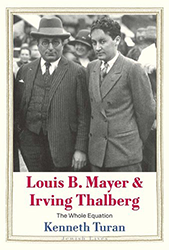What does it mean to be in a toxic relationship? How much responsibility, if any, does the sufferer bear for subjecting themselves to manipulation and abuse? Ruth Madievsky explores one such relationship between two sisters in her novel, All-Night Pharmacy. She doesn’t raise these questions overtly so much as allow them to sit with readers. In doing so, she reveals the factors that led to both sisters’ extreme dysfunction. Those variables — including problematic parenting, sexual abuse, mental illness, addiction, and the ancestral legacy of an oppressed people exposed to violence — contribute to the final fractal equation, whose feedback loop results in an ever more complex and seemingly infinite pattern of destruction.
Throughout the four-part narrative, told from the point of view of the unnamed younger sister, the theme of intergenerational Jewish trauma predominates. The narrator’s Jewish grandmother recalls her father being murdered in St. Petersburg by the KGB “for teaching Torah in the basement.” She raises her own daughter in the US, expecting her to thrive in an atmosphere without the constant fear of death. But the narrator’s mother succumbs to paranoia and depression as an adult, in part from having been fed a steady stream of family horror stories. She is unable to nurture her daughters, who are largely left to fend for themselves. Their father has his own agenda that doesn’t include them.
The chaos that the narrator’s older sister Debbie creates and involves her in becomes increasingly dangerous. Madievsky’s description of the narrator’s descent into dark places can leave readers feeling the need to detox — or at least get some fresh air — after reading certain scenes. In one episode, after blacking out on her nineteenth birthday following a bar bathroom encounter, Debbie and four men drop off the bloody, groggy narrator at an ER. Debbie, for her part, was “in a mood to watch something explode.” Until it’s revealed that the narrator has had a miscarriage, the impression is that the incident turned from “merely” disturbing and exploitative into a life-threatening sexual assault. Madievsky imbues other incidents with similar ambiguity, raising tension to an almost unbearable level and then relieving it with a reality only slightly less awful than our expectation.
There is a game-like quality to Madievsky’s writing. And there are moments of dark humor: when the narrator and her psychic/friend/lover Sasha visit Sasha’s ancestors’ burial site in Kishinev, the narrator mulls over the portraits on the tombstones. “Even in death,” she muses, “they looked as though they were applying for a job in a factory or nagging their grandchildren to finish soup.” As for her own dead Jewish ancestors, rather than pursuing their shadowy memories, the narrator feels she can honor them by living her best life, hoping for “a world where my dead saw me — a recovering addict with a psychic girlfriend and missing sister, estranged from Judaism and unable to speak any of their languages — and felt proud.” Additionally, Madievsky employs literary maneuvers that offer a pleasing symmetry to the text while also testing the reader. For example, the first and last paragraphs of All-Night Pharmacy both include the phrases “Spending time with my sister, Debbie, was like … ” and “Often, it was both.” Is the reader engaged enough to notice the repetition? If so, the reward is revealed in how the final statement differs from the first. The narrator heroically fights to stabilize her life. She is, in her own way, a survivor.
Amy Spungen, a freelance editor and writer, has a BS in journalism from Virginia Commonwealth University and an MA in English from Northwestern University. She lives near Chicago in Highland Park, Illinois.



